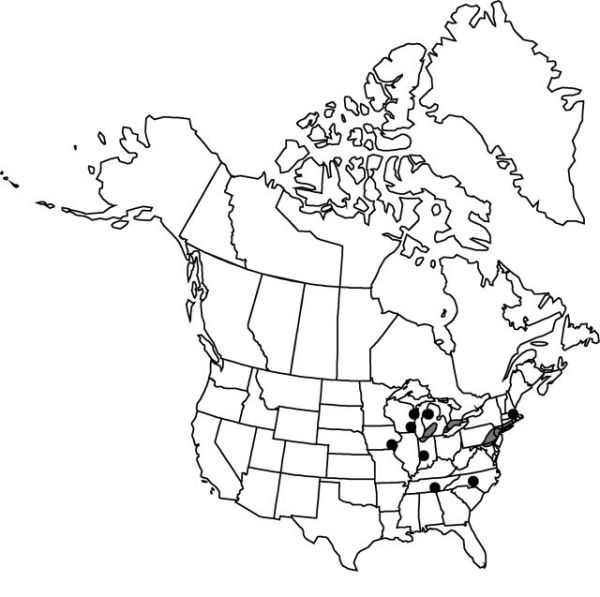Difference between revisions of "Corallorhiza odontorhiza var. pringlei"
Harvard Pap. Bot. 1(10): 24. 1997.
Basionym: Corallorhiza pringlei Greenman Proc. Amer. Acad. Arts 33: 475. 1898
Treatment appears in FNA Volume 26. Mentioned on page 635.
FNA>Volume Importer |
FNA>Volume Importer |
||
| Line 10: | Line 10: | ||
|name=Corallorhiza pringlei | |name=Corallorhiza pringlei | ||
|authority=Greenman | |authority=Greenman | ||
| + | |rank=species | ||
|publication_title=Proc. Amer. Acad. Arts | |publication_title=Proc. Amer. Acad. Arts | ||
|publication_place=33: 475. 1898 | |publication_place=33: 475. 1898 | ||
| Line 37: | Line 38: | ||
-->{{#Taxon: | -->{{#Taxon: | ||
name=Corallorhiza odontorhiza var. pringlei | name=Corallorhiza odontorhiza var. pringlei | ||
| − | |||
|authority=(Greenman) Freudenstein | |authority=(Greenman) Freudenstein | ||
|rank=variety | |rank=variety | ||
| Line 52: | Line 52: | ||
|publication year=1997 | |publication year=1997 | ||
|special status= | |special status= | ||
| − | |source xml=https://jpend@bitbucket.org/aafc-mbb/fna-data-curation.git/src/ | + | |source xml=https://jpend@bitbucket.org/aafc-mbb/fna-data-curation.git/src/f50eec43f223ca0e34566be0b046453a0960e173/coarse_grained_fna_xml/V26/V26_1304.xml |
|subfamily=Orchidaceae subfam. Epidendroideae | |subfamily=Orchidaceae subfam. Epidendroideae | ||
|tribe=Orchidaceae tribe Cymbidieae | |tribe=Orchidaceae tribe Cymbidieae | ||
Revision as of 20:46, 16 December 2019
Flowers: perianth open; lip similar to petals (narrowly obovate-spatulate), 2.7–4.6 × 2–3.7 mm; column 1.8–2.4 × 0.8–1.7 mm, base with 2 prominent auricles on adaxial surface; stigmatic surface 0.3–0.5 × 0.7–1 mm.
Phenology: Flowering late summer–fall.
Habitat: Rich deciduous woods, mixed woods, and conifer plantations
Elevation: 0–2800 m
Distribution

Ont., Conn., Ga., Ind., Iowa, Mich., N.J., N.Y., N.C., Pa., Tenn., Wis., Mexico, Central America (El Salvador, Guatemala, Honduras, Nicaragua).
Discussion
In Corallorhiza odontorhiza both chasmogamous and cleistogamous flowers exist; they occur on separate plants, although sometimes in the same populations. The cleistogamous form is by far the more frequent.
Selected References
None.
Lower Taxa
None.